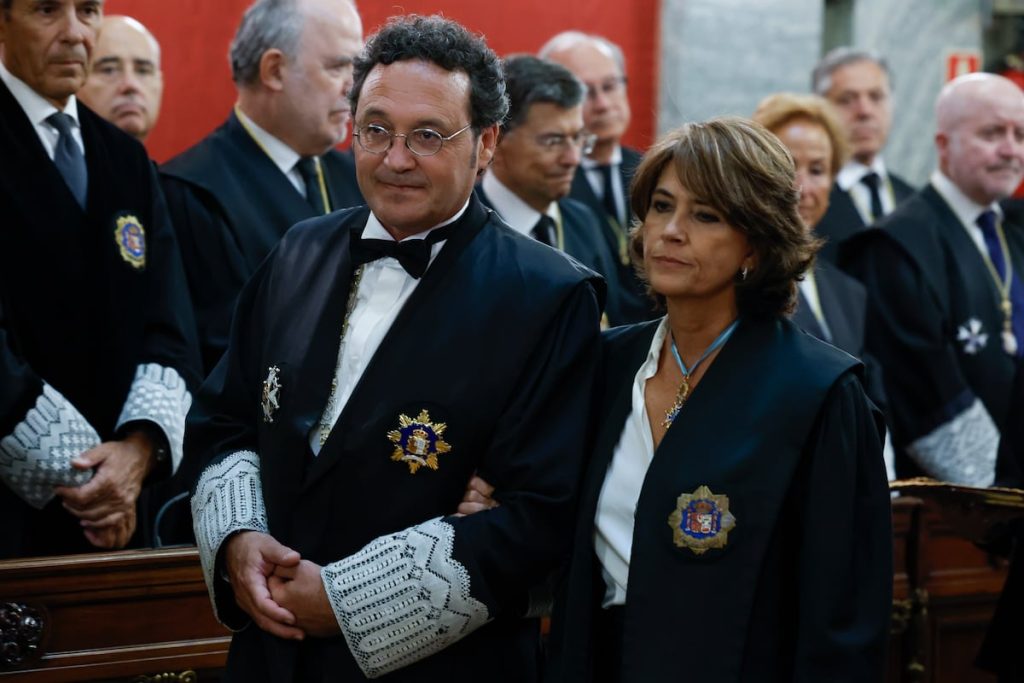The Popular Party believes that the current Attorney General of the State, Álvaro García Ortiz, is another member of President Pedro Sánchez’s Cabinet in his “dirty” plan to “attack democracy and colonize institutions.” They used a debate in the Senate to not only propose the reprimand of García Ortiz, which was successful due to the PP’s absolute majority in that chamber, but also to demand the dismissal of the entire government. The censure of the Attorney General, while symbolic, was approved by 144 votes in favor (from the PP and Vox), 97 against, and 19 abstentions. The PP has been using its control of the upper house to fiercely oppose the Sánchez government, previously censuring the Minister of the Interior and now the Attorney General.
The reproval comes in a week where the Attorney General has faced several setbacks in the judiciary, such as the Supreme Court annulling the appointment of his predecessor, Dolores Delgado, as prosecutor of Democratic Memory, attributing it to abuse of power. Additionally, the Superior Court of Justice of Madrid admitted a complaint against the Attorney General. The PP criticized García Ortiz, citing his alleged lack of transparency, servility to the government, and being considered unfit for the position by the General Council of the Judicial Power. They also accused him of not addressing attacks on judges by Catalan separatist parties and called for his dismissal to restore the institution’s prestige. They also demanded the resignation of the entire government as an example of democratic regeneration they claim Sánchez is promoting.
The PP’s strategy did not find support from other parties, with many questioning the current division of powers and the neutrality of judicial bodies for various reasons. Some viewed the PP’s proposal as an attempt to overthrow the government and achieve what they could not at the polls. The PNV acknowledged historical issues with the independence of Attorney Generals but attributed it to structural deficiencies, not specifically the current one. Junts criticized the proposal as part of a democracy full of irregularities, but focused their criticism on the PSC candidate for the Generalitat and other past actions of the PP, choosing to abstain from voting. The PSOE listed corruption cases involving the PP, suggesting that their criticism of García Ortiz, Delgado, and Bolaños is driven by resentment towards their actions, particularly in relation to the exhumation of Franco.
The debate in the Senate highlighted tensions between the PP and the government, with the former using their majority to censure the Attorney General and call for the government’s dismissal. Other parties expressed skepticism about the motives behind the proposal, with varying degrees of support or abstention. The PSOE defended the government officials targeted by the PP’s allegations, attributing the criticism to historical grievances and political differences. The fallout from the censure vote may impact future relations between the opposition and the government, shaping the political landscape leading up to the Catalan regional election. Overall, the debate underscored the ongoing power struggles and controversies within Spanish politics.















